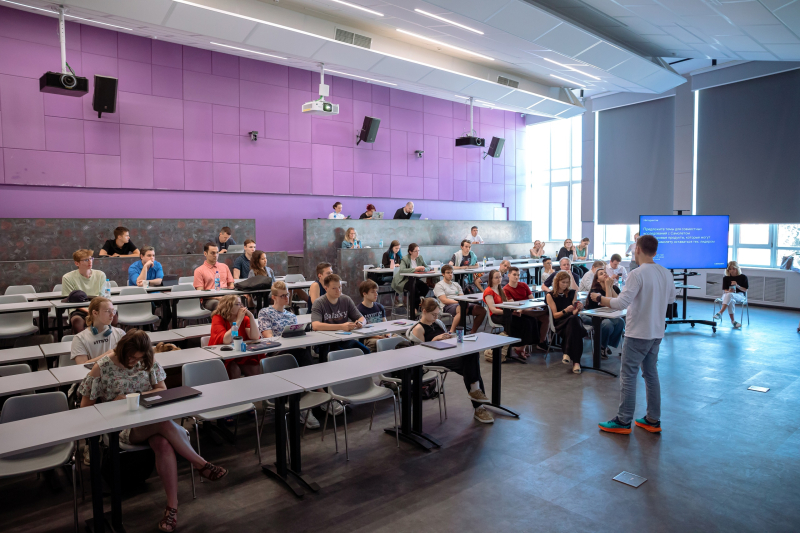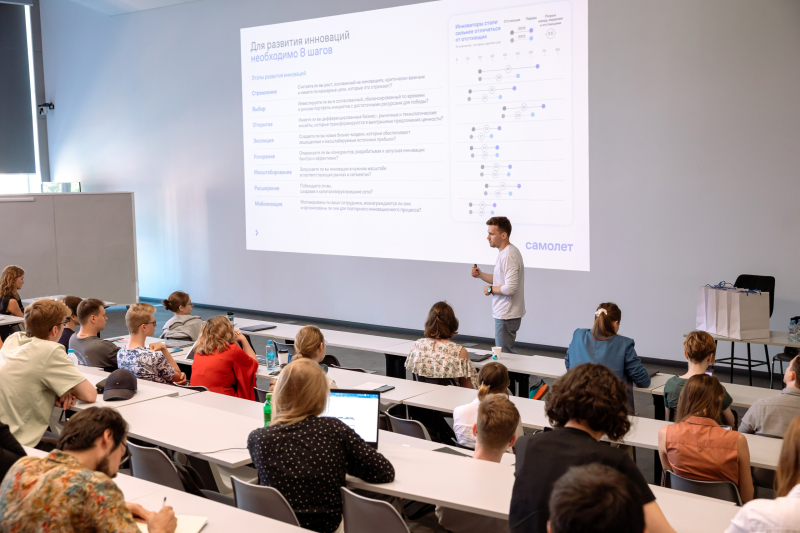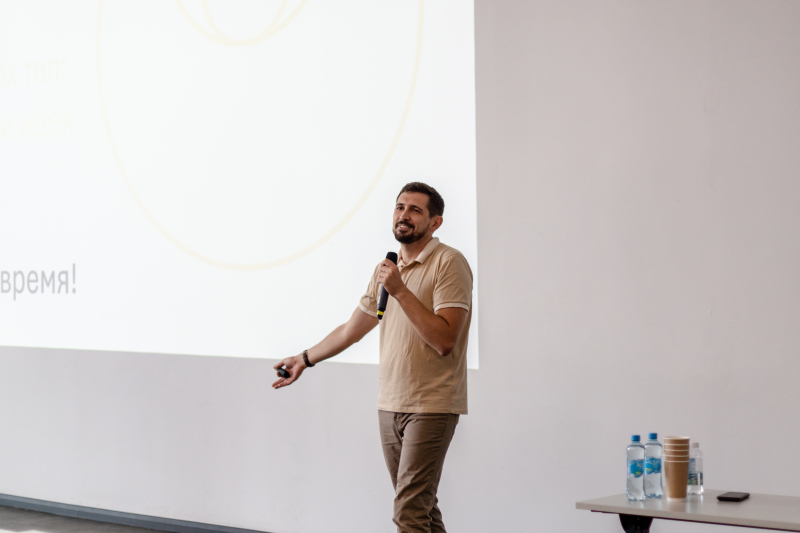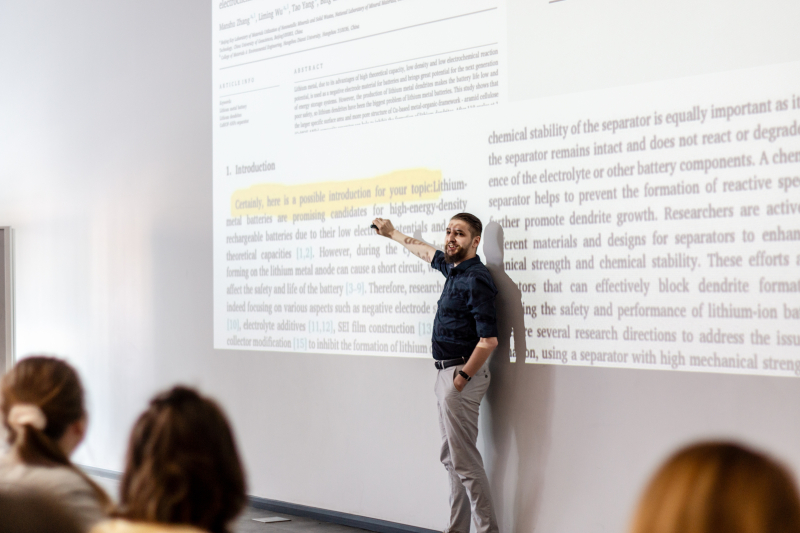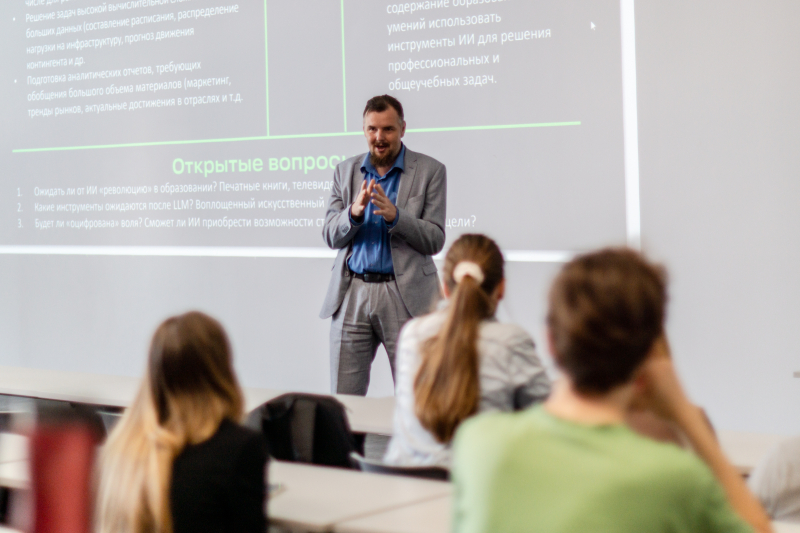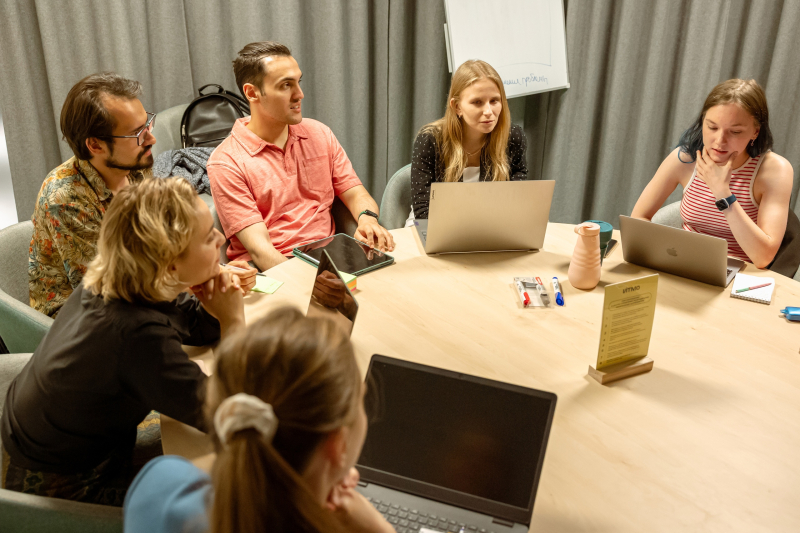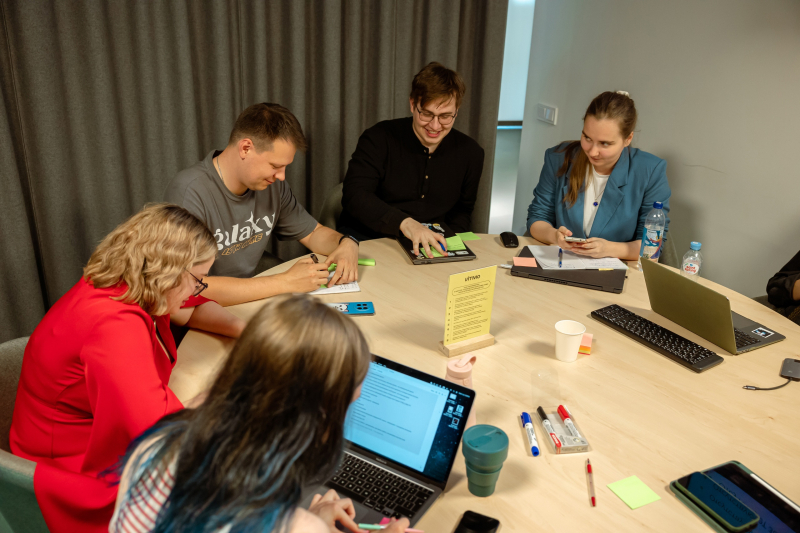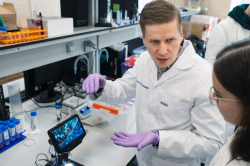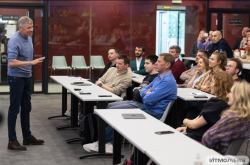What is a PI?
Here at ITMO.NEWS, we’ve been writing about PIs (or principal investigators) for a couple of years now, but only at the school did I finally get a clear distinction between these mysterious new leaders and the more conventional research supervisors. The latter can have various students under their guidance, who are all working on different projects – they don’t necessarily form a team and might not be as involved in joint activities.
PIs, on the other hand, are group leaders: they assemble teams, assist each member’s development, manage their group’s workload, and secure finding. But most importantly, they are visionaries, ready to take on bigger projects, grow in different scientific fields, and expand their team’s expertise. When I asked one of our speakers at the school, "how can one know when they're ready to become a PI?" I was told it is about aspiring for more than routine research – and I think it’s as good a summary as any.
What is PI School?
Essentially, it’s a four-day-long intensive course with lectures and daily group brainstorms. After you submit your application, you also receive a template of a roadmap (which is rather extensive), prompting you to describe your current experience and envision what your career will look like next. My starting point: a PhD student at Sechenov Institute of Evolutionary Physiology and Biochemistry and a member of the ITMO.NEWS international editorial team.
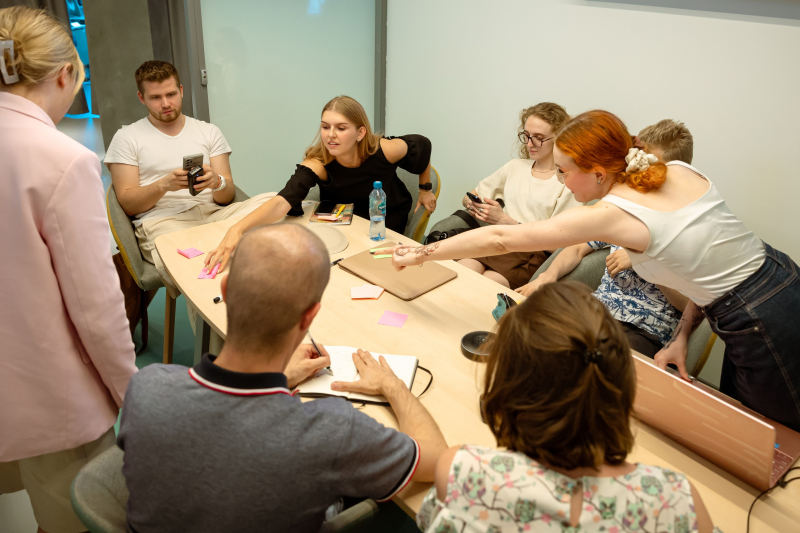
Group discussion. Photo by Polina Gaidadina. Credit: vk.com/itmo_collab
Lectures: daily portions of wisdom and experience
In terms of speakers, we were very lucky – from ITMO’s Rector Vladimir Vasilyev and First Vice Rector Daria Kozlova to Samolet CEO Andrey Ivanenko and Priority 2030 scientific supervisor Andrey Volkov, all of them offered us a top-level view on strategic management of large-scale projects and teams. Along the same topic, we had talks on how to manage an educational program (Alexander Mayatin, the head of the Programming and Internet Technologies Master’s program), be an efficient PI (Dmitry Zuev, a PI at the International Research Center for Nanophotonics and Metamaterials), and develop deeptech projects (Arseny Alexeev, ex senior manager at WaveOptics). AI was paid quite a lot of attention as well, with talks on both the development of LLMs and the various practical applications of AI in a researcher’s daily life.
“We had a very diverse selection of speakers from different fields, with various topics and presenting styles – you could never get bored. And I am certain that all of us had something to learn from each talk,” shares my teammate Albert Seredin, a PhD student at the School of Physics and Engineering.
I quite agree. By the end of the school, I felt I had acquired a new lens for my kaleidoscope: a position for a birds-eye view of my career, a perspective above the routine tasks, and a vantage point for strategic career decisions.
As a side note, I have to say it was almost groundbreaking for me to see and interact with the experts I’ve been translating stories about for years. I believe it’s something akin to meeting your idols: fun and awe-inspiring at the same time.
Group project: imponderable joy and hard challenges
Apart from lectures, each day included several hours of moderated group work. Based on our interests, we were divided into four groups, each focused on one university-wide issue: some tackled communications with industrial partners, others focused on team-building and staff development, and my group happened to be called Ambitious Projects. We were tasked with suggesting something big – so you can imagine we had a lot to discuss. As we gradually got to know each other a little better, the atmosphere at our group discussions grew funner by the minute (and I am certain all great things were made by teams who could share a laugh).
“We had a great time working as a group: we came from very different backgrounds but we managed to become a real team over these four days and come up with a project that we will keep developing outside the school. I only wish we had more time for this group work – but I also know that the school was just our starting point,” says my teammate Svyatoslav Povarov, PhD, a postdoc at the School of Physics and Engineering.
On the school’s final day, after some intense brainstorming, we were to present our suggestions in front of Daria Kozlova, who along with being First Vice Rector also heads ITMO’s 2030 Development Strategy, Alexey Slobozhanyuk, the deputy head of the School of Physics and Engineering, and Alexey Peltek, the head of ITMO Collab and one of the PI School’s organizers.
For some reason, the experience also felt surreal: just a couple of hours ago our project was just ours and now it was being shared with the world. Each team received insightful feedback – and all of us were encouraged to keep developing our projects’ concepts, with a chance to bring them to life later. So far, it seems, each group is truly set on doing so, meaning you might as well see four new initiatives as ITMO soon – exciting times!
Roadmaps
One aspect of the school that felt slightly overlooked was our personal roadmap for professional success.
“I was hoping we’d focus more on outlining our personal growth trajectories; however, instead, we were developing larger projects. I have only positive impressions from working as a group, but I wish we also paid more attention to our roadmaps,” adds Albert Seredin.
Even though due to changes in the program, we didn’t get to properly consider our roadmaps during the school, we are now tasked with filling them out and sharing the updated versions with the organizers. Later on,ITMO’s Staff Support Office will be checking on our progress in the coming months. I find the prospect rather intriguing, even if I would have liked to receive a couple of personalized recommendations on what my next moves could be (by the way, we did ask AI about ways to boost our CVs, so maybe I could start there). Moreover, I appreciate that we each are encouraged to forge our own individual careers, be it as PIs or not, our options laid open and trajectories within ITMO highlighted at the school.
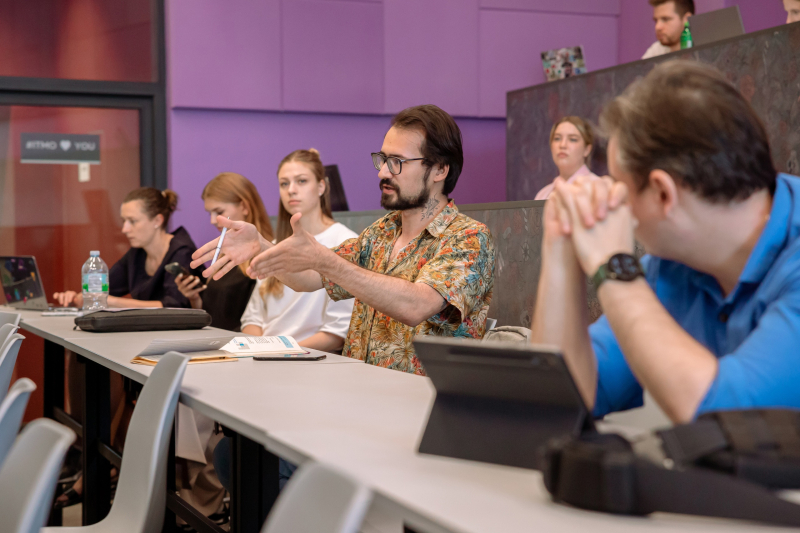
PI School: Rising Stars. Photo by Polina Gaidadina. Credit: vk.com/itmo_collab
Take-home message
PI School is an incredible opportunity to take a radical step outside your bubble: both in terms of lectures and networking. Over these four days, you can reevaluate your career options, pick up some cool AI-based optimization techniques, and discover new ways to grow both within and outside ITMO. When it comes to hard skills, one of the immediate game changers for me following the school were the various AI applications, especially for personal time management (like asking Perplexity to plan my meals with a grocery list) and routine tasks (outlining a report or looking for key papers on a topic). And outlook-wise, I really value the top-level view I described earlier – it’s like a mode you can switch to for a clearer view of the bigger picture.
I am grateful to the university, the school’s organizers, and my wonderful teammates for this entire experience and I sincerely recommend you to join the school next year (though it’s currently in Russian, the program is flexible and I am certain English-language activities can be introduced upon popular demand).
